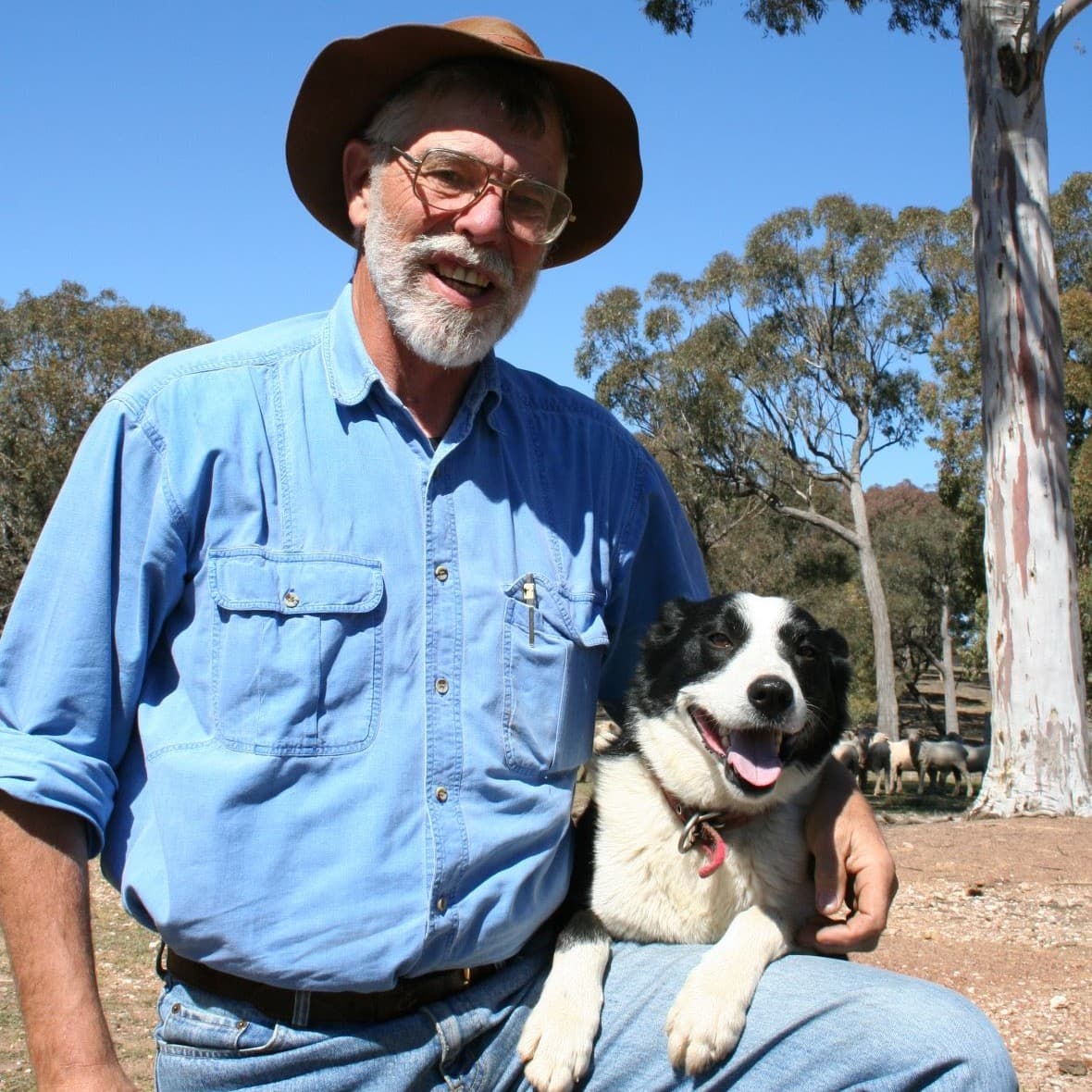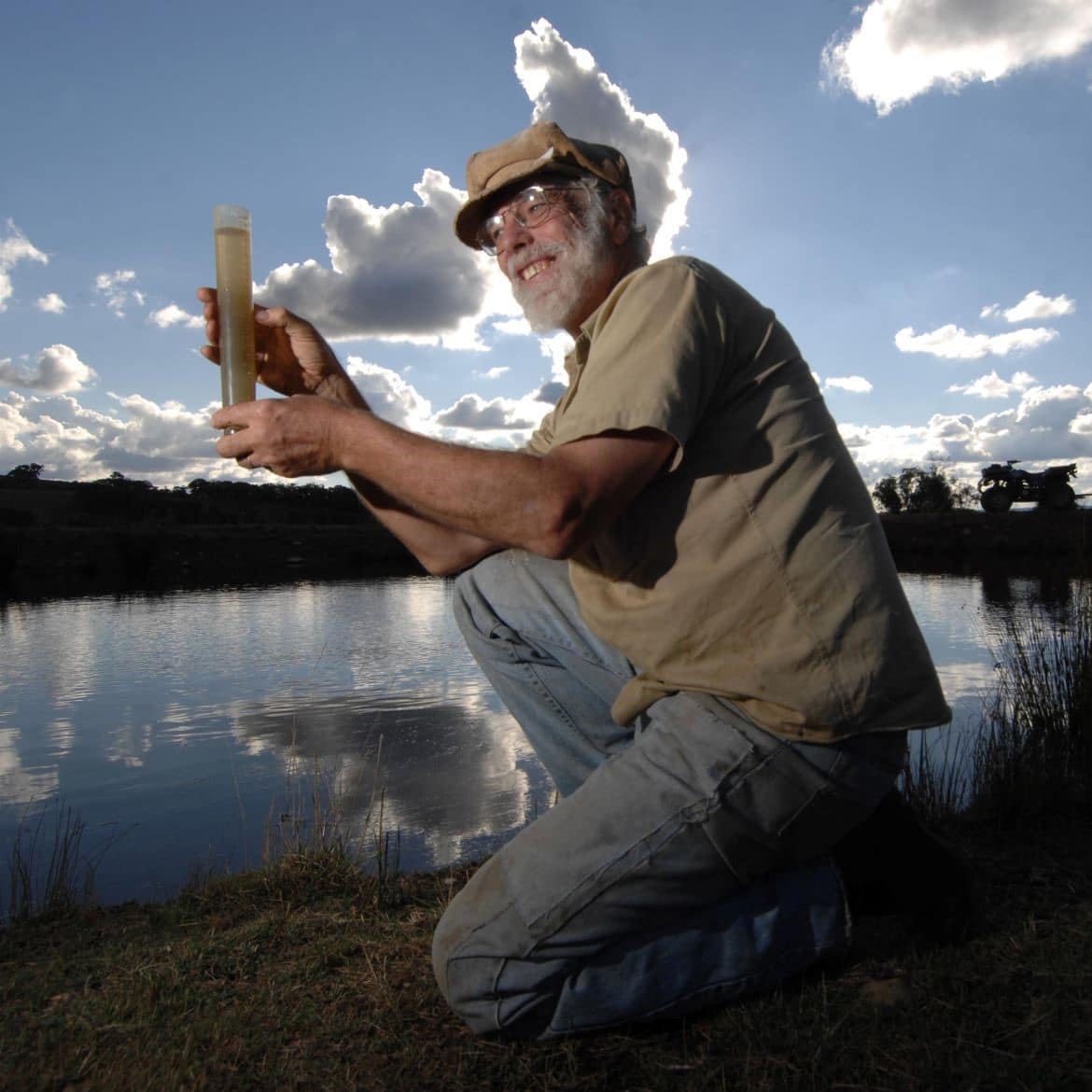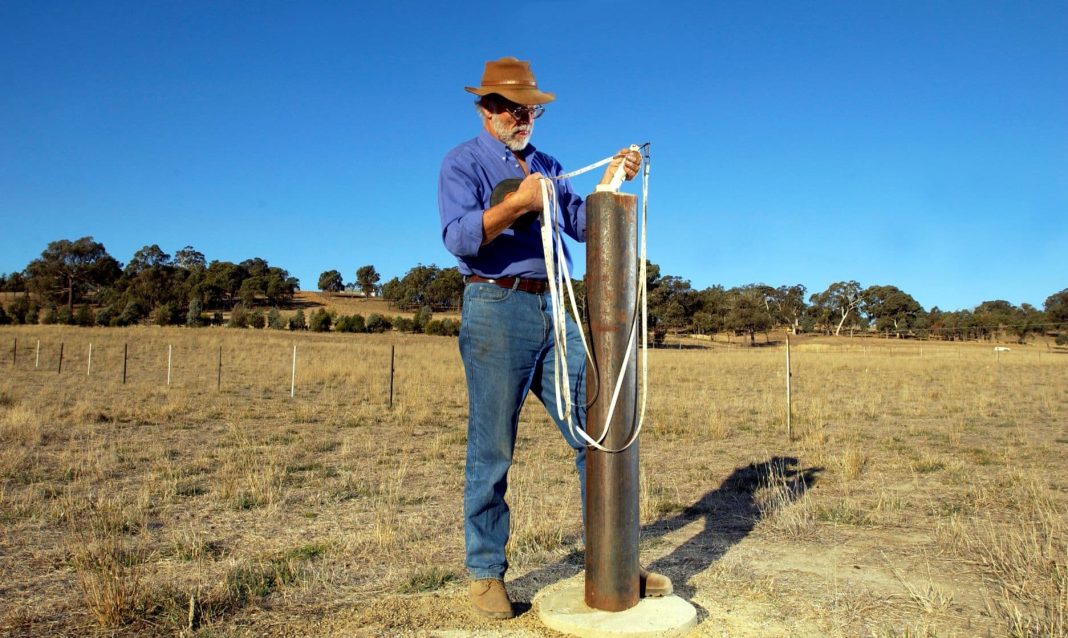For over 40 years, local farmer John Ive has usually risen by 5am – sun or no sun- and is rarely back to the house until late in the afternoon.
“I was up shearing the rams this morning and these days, that’s a day’s work for me. I have to pace myself more now than when I was 40 years younger,” he laughs.
At first glance, John looks like your typical Aussie farmer with his gravelly voice, weathered skin, and classic country hat – he would even describe himself as an average landowner.
But he stands out from the rest of the pack for being a forward-thinking, regenerative farmer, passionately advocating within the farming community for environmentally sensitive farming.
John recently took home the Conservation Council’s ACT Region’s 2021 Environmentalist of the Year Award, a prize rarely synonymous with someone working in the Australian farming industry. He was nominated by Upper Murrumbidgee Catchment Network.
“It frankly feels incredible to win and there were so many nominees of great quality – it was a real surprise,” he says.
“I hope achieving this award increases my credibility and demonstrates to fellow farmers that it’s profitable to follow an environmentally sensitive approach.”
Born and raised on a Victorian farm badly affected by salinity, he worked hard to help his father turn it around.
When he saw the same problem on what was to become his own farm, ‘Talaheni’, near Hall on the NSW-ACT border, he thought, “if my father could do it, I could do it”.
“I personally don’t like to be classified as a regenerative farmer. To me, that establishes a ‘them and us’ division. We are all farmers and land managers; some are good and some are not so good. I expect those that are not so good will go broke and go out of the industry if they don’t seek to better themselves and their farms,” John says.
“Unfortunately, our farm politicians are extremely conservative, and I have no time for them. They’re doing a disservice to farmers and the Australian community.”
‘Talaheni’ produces some of the world’s best ultra-fine wool; John says that was always the goal and his environmental achievements have been an essential precursor.


“Forty years on, the proof is that we’ve done it fairly successfully. When we got the farm, I approached the state authorities, and they came out and said it does not matter what I did because the dry land salinity is a regional problem. I couldn’t just do nothing, so I did what I thought was right and adjusted along the way,” John humbly explains.
One of his proudest achievements is establishing around 300,000 trees on his property’s high recharge ridges, which he says was as simple as opening and closing gates at critical times in the El Nino-La Nina cycle.
“If you’re following what your father did, you’re unfortunately on the way out. I’m not being critical of your father, I’m sure he was just doing the things of the time, but the times are changing. Every time I do a major task, I think about how I can do it better next time. I’m not set in my ways,” John says.
“There have been backlashes to my methods. My next-door neighbour was the exact opposite of me, and when we had field days, people could see the difference on his place compared to ‘Talaheni’, and it was pretty clear I was doing better both on the environmental and production front. He eventually went broke and lost his farm.”
In 2004, John wrote an article entitled ‘The farmer and the environmentalist should be friends’ (a play on Oklahoma’s ‘The farmer and the cowman should be friends’); however, the farming leaders at the time did not want a bar of the ‘greenies’.
“I once heard a political leader call environmentalists ‘watermelons’, because they’re green on the outside and red on the inside, claiming they’re communists. Well, I just think that’s totally unnecessary and regrettable language,” he says.
“I certainly hope more farmers become environmentally sustainable. It’s slow, but if you go back to the 1950s and the practices adopted then, you rarely see farmers doing that these days.”
John’s more important piece of advice for a farmer looking to make their land more sustainable and profitable is, “if you don’t measure it, you can’t manage it. You have to really keep track of the important things”.


See a virtual tour of Talaheni on YouTube here: Talaheni tour
Get all the latest Canberra news, sport, entertainment, lifestyle, competitions and more delivered straight to your inbox with the Canberra Daily Daily Newsletter. Sign up here.



